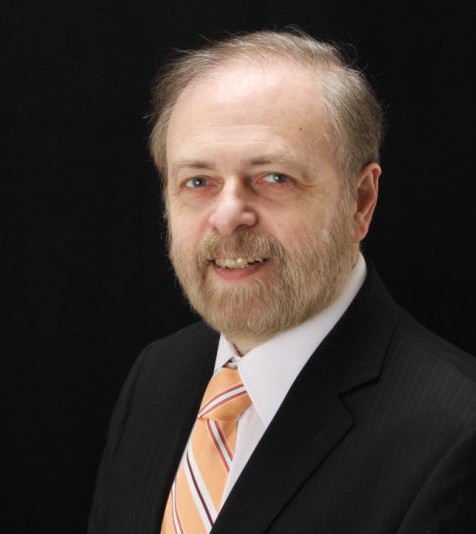By Rabbi Mordechai Levin
In contemporary times, the words “tikkun olam” – repairing the world – have become synonymous with social action, but this is a recent development. What is the origin of these words? What does “tikkun olam” really mean?
Rabbi Gilbert Rosenthal wrote about the evolution of this concept. The verb t-k-n appears only three times in the Hebrew Bible, and only in the book Ecclesiastes. In the text it means “to straighten, to repair, to fashion.”
In the Talmud, the verb assumed several meanings. It meant to fix or repair objects, to prepare oneself for a significant event or the study of Torah. It also referred to passing laws in order to remedy legal inequities or unjust situations. In ritual practices, the verb was applied to the composition of new prayers, the emendation of biblical texts, the fixing of the calendar and holiday dates
The noun form “tikkun ha-olam” – the improvement of the world – is found some 30 times in the Babylonian Talmud, and eight times in the Talmud of the Land of Israel. Almost all the allusions can be found in the fourth and fifth chapters of the tractate Gittin, which deals primarily with divorce laws. The concept was originally formulated to protect the rights of women in divorce cases, and was later expanded into the economic and commercial areas. Hillel, for instance, created the “prozbol,” a document that circumvented the sabbatical cancellation of debts (Deuteronomy 15: 1–3) by authorizing the beit din to collect the money rather than the creditor
In the third century, the concept appeared in the Aleinu prayer. This prayer was originally part of the Rosh Hashanah liturgy, and since the 14th century, it has ended each of the three daily services. But here the notion of tikkun ha-olam received a new connotation: God, rather than humans, will repair the world.
The prayer reads: “We therefore hope in You, O Lord our God that we may speedily see Your glorious power, when all the abominations will be removed from the earth and all the idols will be abolished; when the world will be mended/fixed/improved under the kingship of the Almighty — le-taken olam be-malkhut Shaddai — and all creatures will call upon Your name and the wicked will turn to You.”
This means: we pray that God will establish his kingship so that the world might be mended, all forms of idolatry will cease and all people will recognize God.
In contemporary usage, tikkun olam also refers to the betterment of the world; this may include things such as the relief of human suffering, the achievement of peace and mutual respect among peoples, and the protection of the planet from destruction.
It was in the 1950s that Shlomo Bardin — founder of the Brandeis-Bardin Camp — started interpreting tikkun olam as social justice. The term gained prevalence in the 1970s and 1980s, and was adopted by the Conservative and Reform movements.
The “Statement of Principles of Conservative Judaism,” from 1988, utilized the term in the paragraph about “Social Justice: Building a Better World,” where it stated: “Involvement in this world as expressed in the prayer Aleinu reflects our concern for all people and our impulse to mend and improve the world under God’s Kingship.” And later: “There is an unfinished agenda before us: le-takken olam bemalkhut Shaddai, to mend and improve the world under God’s Kingship” and so we must “take action to fulfill the call of our tradition to advance the cause of justice, freedom, and peace.”
In 1999, the Reform movement utilized the term in an official document — its platform of religious principles — for the first time. There it stated: “We bring Torah into the world when we strive to fulfill the highest ethical mandates in our relationships with others and with all of God’s creatures. Partners with God in tikkun olam, repairing the world, we are called to help bring nearer the messianic age.”
But tikkun olam doesn’t have to apply to social action only. Rabbi Jonathan Sacks wrote that the essence of tikkun olam is that by being Jews, we have universal consequences; we help change the world. We, in a secular age, should become role models for spirituality. We, in a relativistic time should be able to teach people once again to hear the commandments “You shall” and “You shall not.” By doing this, we begin to perfect the world.
 is the rabbi of Congregation Beth Israel in Munster, IN. He received his rabbinic ordination from the Latin American Rabbinical Seminary, and is a member of the Rabbinical Assembly. In 2010, he was awarded an Honorary Doctorate of Divinity from the Jewish Theological Seminary in New York City for his years of dedicated service to the Conservative movement and the Jewish community...
is the rabbi of Congregation Beth Israel in Munster, IN. He received his rabbinic ordination from the Latin American Rabbinical Seminary, and is a member of the Rabbinical Assembly. In 2010, he was awarded an Honorary Doctorate of Divinity from the Jewish Theological Seminary in New York City for his years of dedicated service to the Conservative movement and the Jewish community...